KAUST HIGHLIGHT
As we close out 2017, we look back at some of the achievements at the University over the past 12 months.
As we close out 2017, we look back at some of the achievements at the University over the past 12 months.
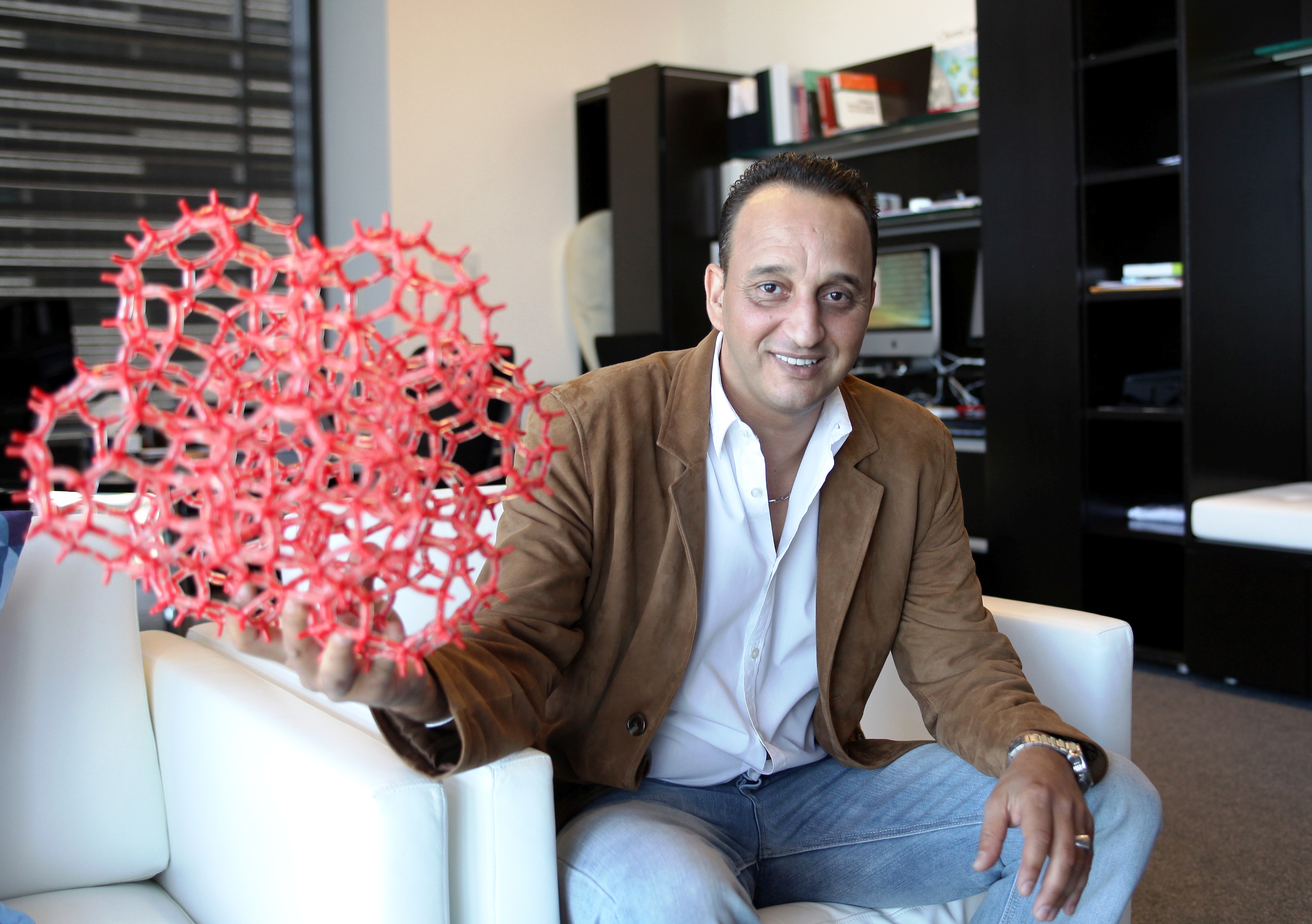
Another notable KAUST research breakthrough in 2017 came from a team of scientists led by Mohamed Eddaoudi, director of the University's Advanced Membranes and Porous Materials Center. The researchers overturned of the conventional view that metal-organic frameworks (MOFs) cannot be stable in water. In a paper published in Science, the KAUST researchers developed an MOF that can selectively and effectively adsorb water to dry gas streams. "The achievement of energy-efficient dehydration by our MOF is revolutionary," said Mohamed Eddaoudi.
Also advancing our understanding of MOFs, a paper published by KAUST researchers and collaborators in Nature Materials. The work detailed the adaptation of high-resolution transmission electron microscopy (HRTEM) to observe the atomic structure of metal-organic frameworks.
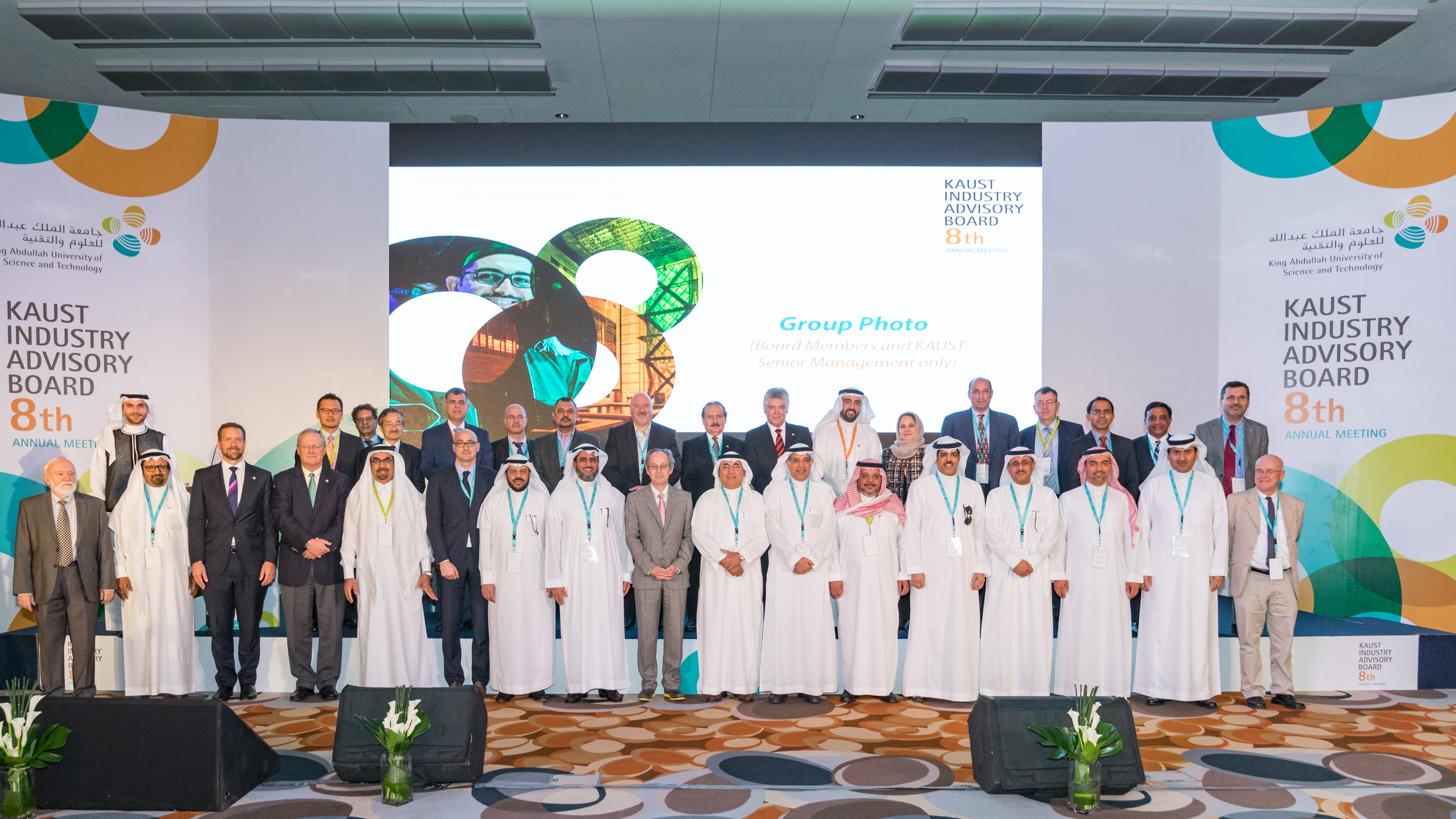
KAUST faculty shared some of the University's top research highlights were shared during the 8th annual KAUST Industry Advisory Board (KIAB) meeting in March. The annual gathering of executive-level industry representatives takes place to discuss the latest research activities at KAUST. Members of KIAB include Saudi and international organizations and corporations with a focus on advancing research and development in the Kingdom. Presentations and panels discussions led by KAUST faculty focused on the need for both academia and industry to be open-minded and to welcome change.
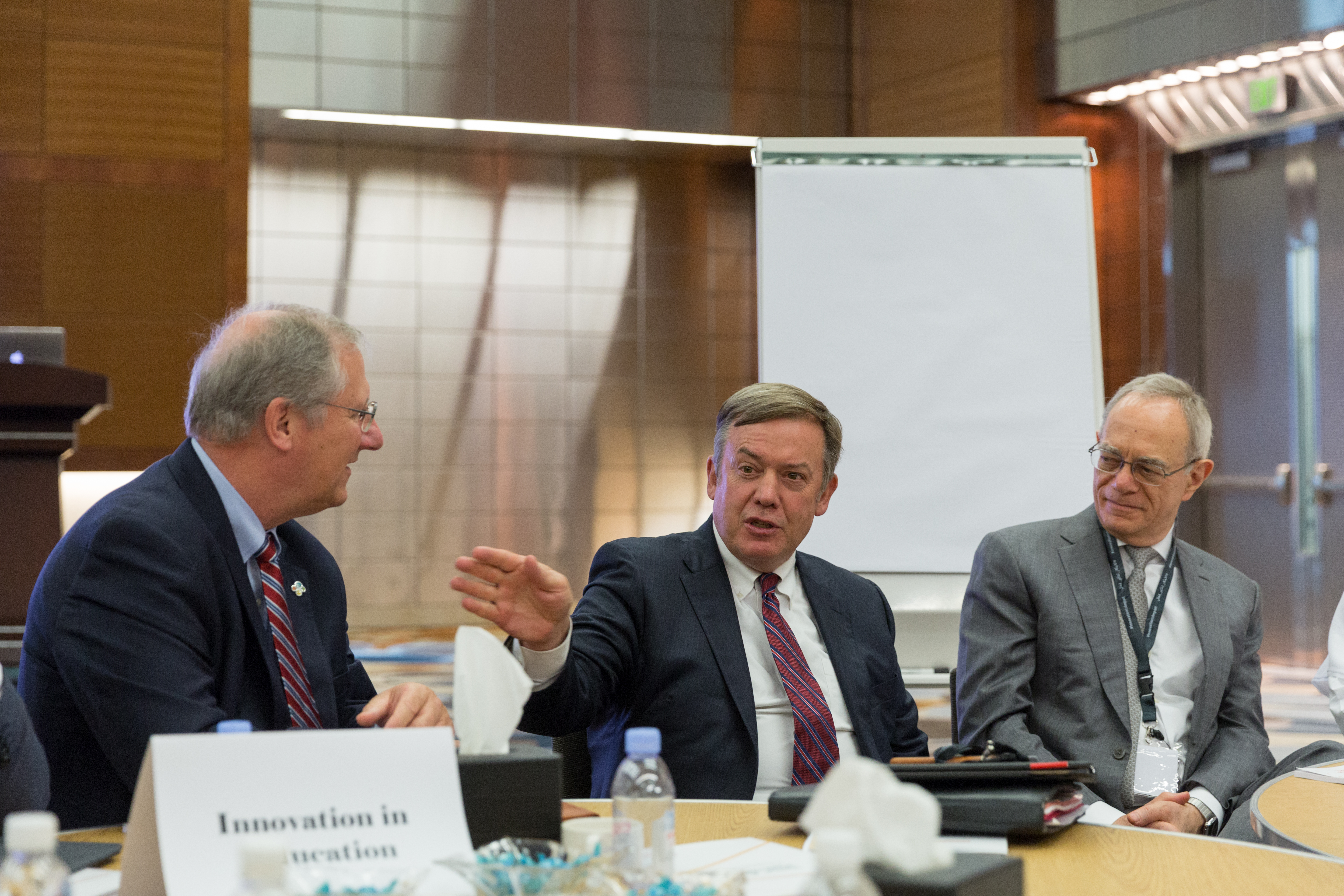
In May, KAUST hosted the Innovation to Impact Roundtable, a forum brought together a cross section of academics and industry leaders from the U.S. and Saudi Arabia. Organized by King Abdulaziz City for Science and Technology (KACST), the General Authority for Small and Medium Enterprises (SMEA) and KAUST, the gathering of thought leaders was aimed at developing collaboration opportunities between private, academic and government institutions in Saudi Arabia and the U.S.
"The future of all advanced economies will depend upon the success of the younger generation's ability to evolve with the remarkable technological changes that are happening around us," Professor James
Calvin, KAUST vice president for Academic Affairs, said during his talk at the event.
In 2017, the University continued to deliver on the promises of talent development and social responsibility. KAUST hosted 43 gifted 11th grade students from across Saudi Arabia as part of the University's seventh
annual Saudi Research Science Institute (SRSI), which takes place each summer. The institute gives students from the Kingdom the chance to experience working in state-of-the-art laboratories under the supervision of faculty members, Ph.D. students and postdoctoral fellows at KAUST.
In April, KAUST hosted more than 100 professionals from Saudi universities for the National Academic Talent Development Program (NATDP). The program, which began in 2009, aims to prepare a future generation of leaders for academic and research institutions across the Kingdom.
At the start of 2017, KAUST hosted a group of 19 female students and teachers from the Thuwal intermediate school as part of its Young Learners Development Program (YLDP), which is administered by the Social Responsibility Department. The program aims to keep young people engaged with KAUST and inspire them to explore future careers in science. The group saw KAUST in action, taking part in faculty presentations, lab tours and other activities.
Central to the vision and mission of KAUST is the advancement of science and technology through local and international collaborative research and partnerships. A major 2017 milestone in this vein was the collaboration between ANSYS, Saudi Aramco and KAUST to achieve a new supercomputing record by scaling ANSYS Fluent to nearly 200,000 processor cores. This record represents a more than five-fold increase over the record set just three years ago, which will enable organizations to make critical decisions faster and increase the overall efficiency of oil and gas production facilities.
The power of high performance computing (HPC) to build effective models and simulations used for pivotal applications in industry, climate change, earthquake monitoring and more was an integral part of the discussion at the Global IT Summit held at KAUST in February.
Other announcements on the collaboration front in 2017 included the topping out ceremony for the Dow Middle East Innovation Center (MEIC) at KAUST. Set to be compete during the second half of 2018, the center will feature state-of-the-art technologies like reverse osmosis, ultrafiltration, energy-efficient systems and infrastructure and roofing systems.
Also announced in May was the opening of the Electron Microscopy Center of Excellence at KAUST, in collaboration with Thermo Fisher Scientific, Inc. The center aims to offer KAUST scientists and collaborators exploration and experimentation capabilities through Thermo Fisher's leading electron microscopy platform.
The University placed in a leading position in regards to research output by the QS World University Rankings 2016-2017, and KAUST faculty members have continued to receive international recognition and awards in 2017.
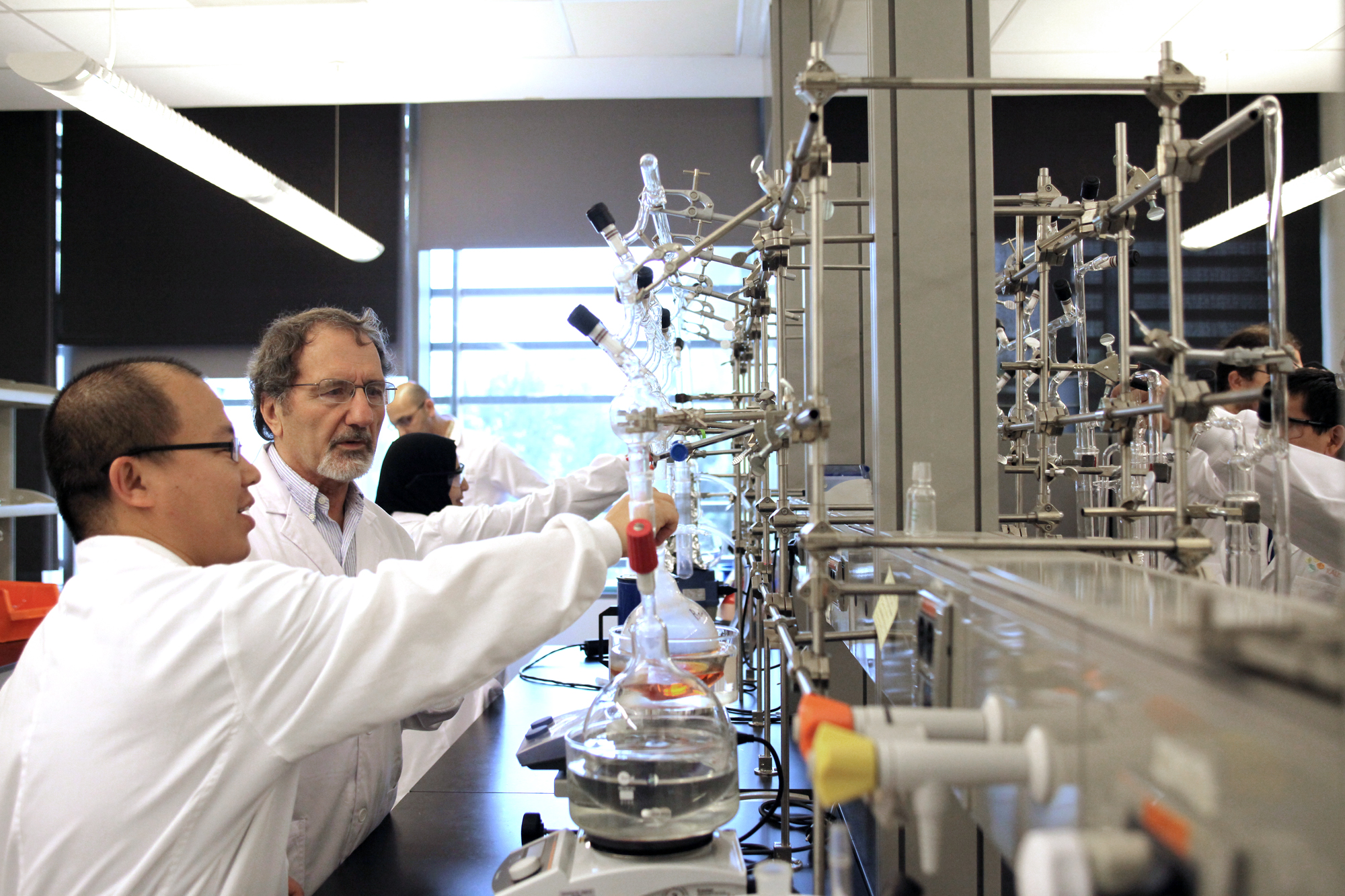
This year, KAUST Distinguished Professor of Chemical Science Nikolaos Hadjichristidis was appointed chair of the National Council for Science and Innovation of Greece. Additionally, Mohamed-Slim Alouini, KAUST professor of electrical engineering, was honored with the Organization of Islamic Cooperation (OIC) Science and Technology Achievement Award at the First OIC Summit on Science and Technology.
KAUST Professor Boon Ooi was elected as a fellow of the Optical Society of America (OSA) in 2017. He was recognized by the OSA for his pioneering contributions to optoelectronic device technologies—in particular those in light-emitting devices in visible wavelengths—and their applications to lighting and optical communications.
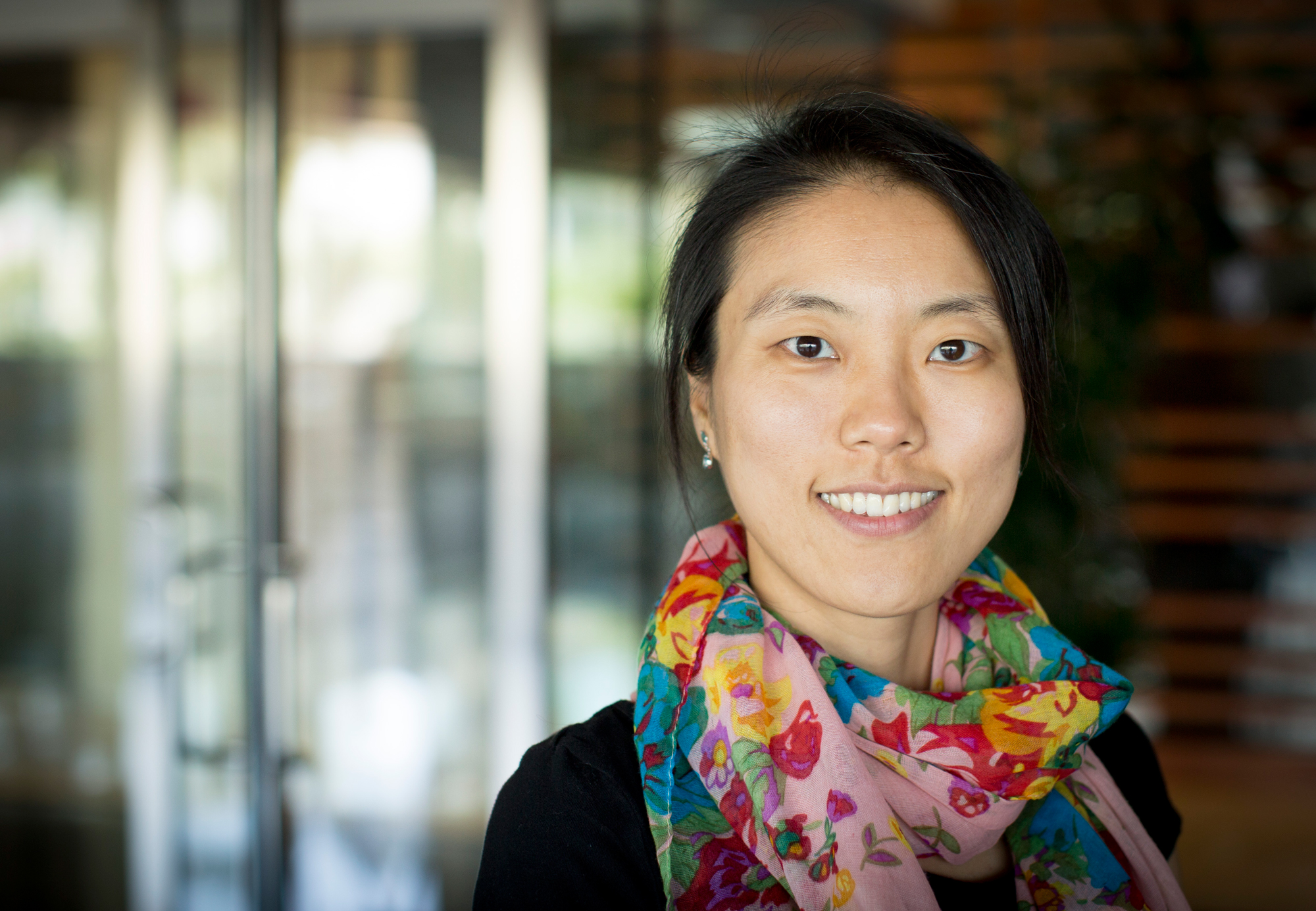
Other faculty awards included Professor Hong Im's induction into the National Academy of Engineering of Korea and KAUST assistant professor Ying Sun's win the 2017 Section on Statistics and the Environment Early Investigator Award from the American Statistical Association.